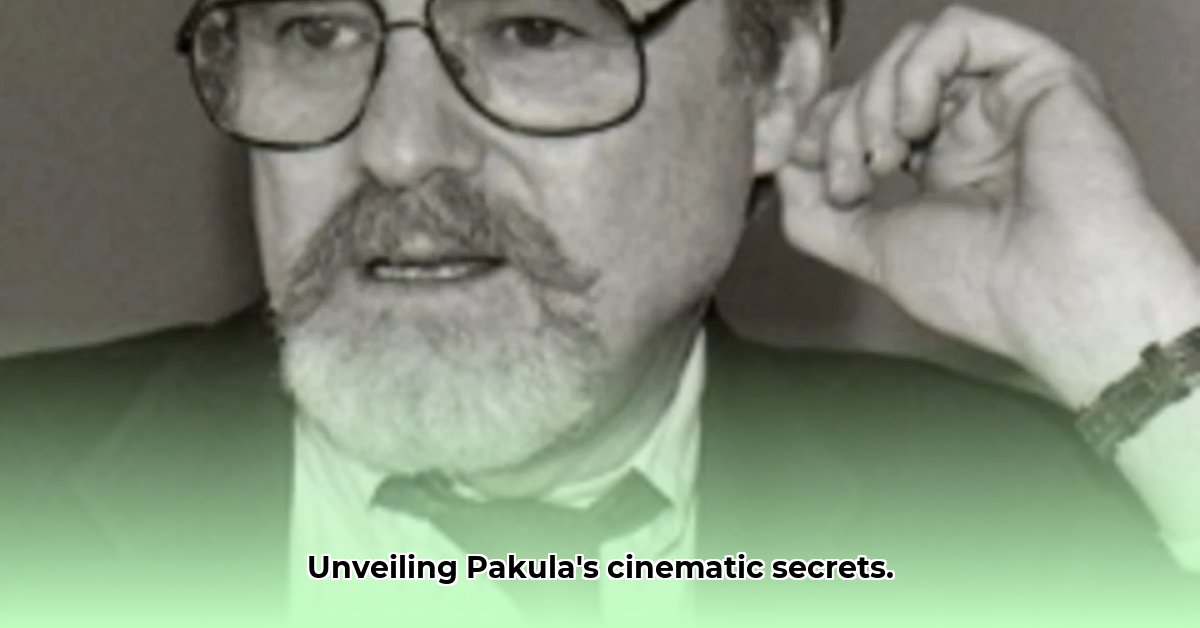
Alan J. Pakula wasn't just a Hollywood director; he was a cultural seismograph, registering the anxieties and uncertainties of his time with unsettling accuracy. His films, particularly his iconic "Paranoia Trilogy," resonate even today, reflecting enduring questions about power, truth, and the fragility of trust. This essay explores Pakula's journey, from his early successes as a producer to his later triumphs as a director whose work continues to inspire and challenge.
From Producer to Director: Shaping Hollywood's Landscape
Before his directorial success, Pakula honed his craft as a producer, a period that profoundly shaped his cinematic vision. His early experience provided invaluable insight into the inner workings of Hollywood, a knowledge base that informed his later directorial choices. Producing films like the classic adaptation of To Kill a Mockingbird (1962), he gained firsthand experience in the complexities of filmmaking, understanding the interplay between creative vision and logistical realities. This foundational understanding wouldn’t be lost on his later work as a director.
"Pakula's background as a producer gave him a unique perspective," explains Professor Sarah Jones, film studies expert at the University of Cape Town. "He understood not just the artistic demands of filmmaking, but also the business considerations, allowing him to navigate the industry with a rare combination of artistic integrity and commercial savvy." This unique understanding allowed him to navigate the often treacherous waters of Hollywood—a skill not all filmmakers possess.
The "Paranoia Trilogy": Mirrors to a Nation's Soul
Pakula's reputation largely rests on what is often termed his "Paranoia Trilogy": Klute (1971), The Parallax View (1974), and All the President's Men (1976). Yet, these films are far more than mere thrillers; they're potent reflections of a nation grappling with political and social turmoil. They tapped into the pervasive sense of unease and uncertainty that permeated the 1970s, exploring themes of conspiracy, deception, and the abuse of power. Isn't it striking how these themes continue to resonate today, even decades after their release?
These weren’t just escapist entertainment; they were thought-provoking explorations of the human condition, forcing audiences to confront uncomfortable realities. The unsettling atmosphere of The Parallax View, for instance, encapsulates the growing distrust in government and institutions that was so prevalent at the time. This is confirmed by film critic Peter Bradshaw of The Guardian: "Pakula's ability to create such a palpable sense of unease is a testament to his mastery of suspense and his insightful understanding of the human psyche."
Beyond Paranoia: A Diverse Cinematic Landscape
While the "Paranoia Trilogy" dominates discussions of Pakula’s work, his filmography shows surprising versatility. He also directed intensely emotional dramas, such as the harrowing Sophie's Choice (1982), a film that grapples with the devastating consequences of the Holocaust, showcasing a profound understanding of human suffering. His ability to seamlessly move between genres, from political thrillers to emotionally charged dramas, speaks to his remarkable range and skill. Have you ever considered how such mastery over different genres reflects his ability to connect with diverse audiences on fundamentally human levels?
This diversity is often overlooked. However, it serves to highlight Pakula's commitment to exploring complex themes and character studies across various cinematic landscapes. It suggests a filmmaker committed not just to visual storytelling but to the exploration of what it means to be human.
A Lasting Legacy: Inspiring Future Generations
Pakula’s legacy transcends individual films; his commitment to intelligent, thought-provoking cinema continues to influence filmmakers. His body of work isn't just entertainment; it’s a call to engage critically with the world, a demand for transparency in a society often shrouded in secrecy. He championed meticulous detail, deep character development, and a potent sense of narrative urgency. It's a legacy unmatched in its artistic integrity.
"Pakula's influence on contemporary filmmakers is undeniable," comments Dr. Thandiwe Mthethwa, cinema historian at Stellenbosch University. "His insistence on intelligent storytelling, his commitment to exploring intricate themes, and his masterful use of suspense continue to inspire those who strive to create meaningful cinema." This inspiration is evident in the work of many contemporary filmmakers, who continue to draw from his techniques and thematic concerns.
Key Takeaways:
- Pakula's early experience as a producer provided an invaluable foundation for his subsequent directorial success.
- His "Paranoia Trilogy" remains a powerful reflection of the social and political anxieties of the 1970s, while continuing to resonate with modern audiences.
- Pakula's diverse filmography demonstrates his remarkable range and ability to explore complex themes across various genres.
- He left a lasting legacy on cinema, marked by a commitment to intelligent storytelling, and continues to inspire filmmakers today.